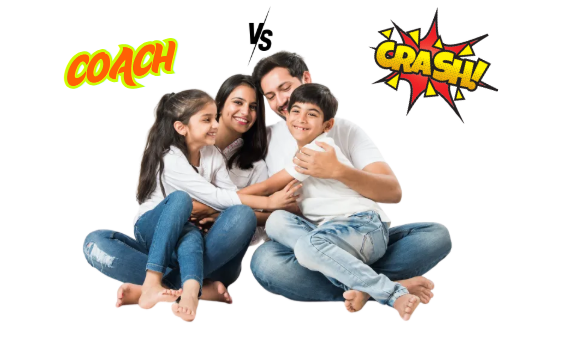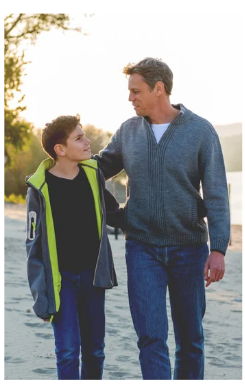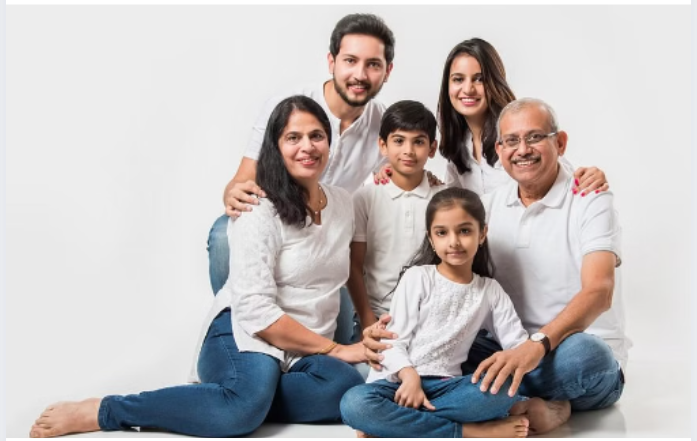Parenting is a complex and multifaceted journey that requires a deep understanding of ourselves, our children, and the dynamics that shape our relationships. As parents, we strive to raise our children to be confident, capable, and compassionate individuals who can navigate the challenges of life with resilience and determination. However, the path to achieving this goal is not always straightforward. Two contrasting states that can significantly impact our parenting approach are the COACH state and the CRASH state. The COACH state represents a mindful and intentional approach to parenting, characterized by calmness, openness, awareness, curiosity, and helpfulness. In contrast, the CRASH state is marked by reactivity, impulsiveness, criticism, anger, and harshness. Understanding the differences between these two states is crucial for effective parenting, as it allows us to recognize when we’re operating from a place of strength and when we’re succumbing to stress and emotional reactivity.
The distinction between the COACH and CRASH states is not simply a matter of semantics; it has a profound impact on the way we interact with our children, the way they respond to us, and the kind of relationship we build with them. When we operate from the COACH state, we’re able to approach parenting with a sense of purpose and intention, creating a safe and supportive environment that fosters growth, learning, and development. In contrast, the CRASH state can lead to a more reactive and punitive approach, characterized by power struggles, conflict, and emotional distress. By understanding the characteristics of both states, we can take steps to cultivate the COACH state and minimize our time in the CRASH state, leading to more effective and empathetic parenting.
The COACH State: Empowering Parenting:
The COACH state represents a mindful and intentional approach to parenting. It is a resource-rich state where parents are centered, open, attending, connected, and holding, fostering a supportive and effective parenting environment. When we’re in the COACH state, we’re:
C – Calm and composed, even in chaotic situations. We’re able to manage our emotions and respond thoughtfully, rather than reacting impulsively.
O – Open to our child’s perspective and feelings. We’re able to listen actively and empathetically, validating their experiences and emotions.
A – Aware of our own emotions and triggers. We’re able to recognize when we’re feeling stressed or overwhelmed, and take steps to manage our emotions.
C – Curious and non-judgmental, seeking to understand our child’s needs. We’re able to approach challenges with a sense of curiosity and inquiry, rather than jumping to conclusions or making assumptions.
H – Helpful and supportive, providing guidance and encouragement. We’re able to offer constructive feedback and support, helping our child develop the skills and confidence they need to succeed.
When we operate from the COACH state, we’re better equipped to:
Set clear boundaries and expectations that are fair and reasonable.
Encourage independence and self-regulation, helping our child develop the skills they need to manage their emotions and behaviors.
Model healthy communication and conflict resolution skills, showing our child how to navigate challenging situations in a constructive and respectful way.
Foster a growth mindset and resilience in our children, helping them develop a positive and optimistic outlook on life.

The CRASH State: Reactive Parenting:
In contrast, the CRASH state represents a more reactive and impulsive approach to parenting. It is a high-stress state where parents are often overwhelmed and may experience a loss of perspective, potentially leading to less effective parenting strategies.
When we’re in the CRASH state, we’re:
C – Critical and judgmental, focusing on what’s wrong. We’re more likely to criticize and condemn, rather than offering constructive feedback and guidance.
R – Reactive and impulsive, responding to situations without thinking. We’re more likely to react impulsively, without considering the consequences of our actions.
A – Angry or anxious, letting our emotions dictate our actions. We’re more likely to let our emotions get the better of us, leading to conflict and power struggles.
S – Stressed and overwhelmed, struggling to cope with the demands of parenting. We’re more likely to feel burned out and exhausted, leading to a decrease in our ability to parent effectively.
H – Harsh and punitive, using discipline as a means of control. We’re more likely to use punishment and negative reinforcement, rather than positive reinforcement and constructive feedback.
When we operate from the CRASH state, we’re more likely to:
Use punitive discipline and punishment, which can lead to fear, resentment, and rebellion.
Struggle to manage our own emotions and respond thoughtfully, leading to conflict and power struggles.
Create conflict and power struggles with our children, damaging our relationship and undermining their sense of safety and security.
Undermine our children’s self-esteem and confidence, leading to negative outcomes such as low self-esteem, anxiety, and depression.
Shifting from CRASH to COACH:
While it’s inevitable that we’ll sometimes find ourselves in the CRASH state, the key is to recognize when we’re there and make a conscious effort to shift to the COACH state. By doing so, we can:
Take a deep breath and calm down before responding to a situation.
Practice empathy and understanding, rather than judgment and criticism.
Focus on teaching and guiding our children, rather than punishing or controlling them.
Model healthy communication and conflict resolution skills, showing our children how to navigate challenging situations in a constructive and respectful way.

By shifting from the CRASH state to the COACH state, we can create a more positive and supportive environment for our children to grow and thrive. We can build stronger, more resilient relationships with our children and help them develop the skills and confidence they need to succeed in life.
Parenting is a journey, not a destination. By understanding the COACH and CRASH states, we can take a more mindful and intentional approach to parenting, creating a safe and supportive environment for our children to grow and thrive. By cultivating the COACH state and minimizing our time in the CRASH state, we can become more effective, empathetic, and supportive parents and help our children develop the skills and confidence they need to succeed in life.







